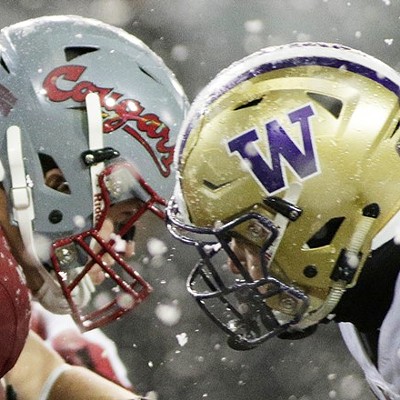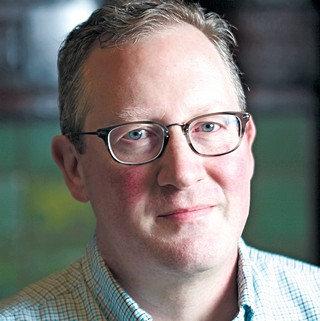Despite predictions to the contrary, the printed word is not going anywhere. Where those words are printed, now that’s changing, but words still have power. Today you can interact with words on your Kindle, your iPhone and, yes, still in places like the Inlander, where (shameless plug alert) more and more locals are interacting with words every year.
Words today come at you from everywhere — you might get tweeted a pithy thought; you can search a keyword online; and lots of words live in a magical place called “the cloud,” where you can grab a novel and beam it right into your hands. That word — “cloud” — is proof that the language is ever-changing, as Merriam-Webster is considering adding “cloud” to its next dictionary.
We’re swimming in words. You could almost say we’re “underwater” — another word to recently make the dictionary for its new, alternate meaning as a state of financial distress. A lot of the newest words and phrases are kind of apocalyptic like that. Our culture is filled with visions of doom — think Hunger Games — and we need new ways to describe that anxiety.
We’re also inundated with words that try to out-clever each other: If it’s not over-the-top, we don’t really listen anymore. That’s why another word of the year — “superstorm” — nailed it. When that hurricane hit the East Coast — like, all of the East Coast — it couldn’t just be “Sandy” or another “storm of the century.” It had to be “superstorm,” which is both superscary and superhyperbolic.
That’s why our creepy political action committees have become “Super PACs,” our post-2008 malaise is not just a downturn, but “The Great Recession,” and instead of facing a garden-variety economic decision point, we are standing on the edge of a “fiscal cliff.” (And we all know what happens on cliffs — like a getaway car in a bad ’70s movie, you go over them.)
We’ve added so many scary words, it’s been hard for the Mayan calendar to get any traction lately.
Thankfully Merriam-Webster is considering adding quirky ones, too — “man cave,” “bucket list” and “meme,” as in, those Internet sensations that travel through the culture like a virus.
I’ve heard some philosopher coined “meme” in the 1970s, but it still reminds me of that elegant French phrase: la meme chose, which means “the same thing.” What’s the same here is the fact that words can still make us laugh (Joe Biden’s “Malarkey!”), inspire us and sometimes scare the hell out of us. What’s new is that they are coming at us faster, louder and from more places than ever before. Of course there’s a perfect word for that, and it’s my 2012 Word of the Year: “cacophony.”





















